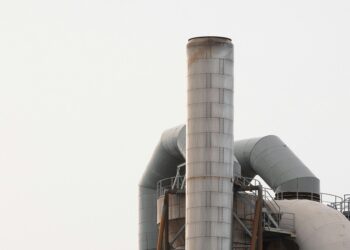The CEO of Proserv has called for the oil and gas industry to make dynamic changes to the way it acts and behaves.
Speaking at Offshore Europe, David Lamont said the North Sea has many years of profitable life ahead if the sector urgently adopts more collaborative and efficient business practices.
“We must embrace and rekindle the pioneering spirit that made the North Sea great in the past to ensure the North Sea industry doesn’t fade out prematurely, but really flourishes in its latter years,†he said.
“Despite talk in recent years of the urgent need to act and collaborate, even before the oil price crash, the industry as a whole still has a long way to go. Everyone knows what needs to be done but the inertia in the industry is of great concern. The time is now to put a stop to this and make dynamic changes to the way we act and behave. Changing our approach to how we think and do business will see the industry thrive, rather than simply survive.â€
The CEO said that the industry must challenge the conventional by looking beyond standard practices of simply challenging the supply chain to trim costs. Any material change will only come by changing the fundamentals in the way we work together.
Wasteful
“As a start, we must stop over-engineering if we are to reset the cost base. Realizing the value of the huge number of marginal fields in the UKCS will only be possible if we as an industry collaborate and cooperate to make the most of the existing infrastructure, enhanced only by the most appropriate and efficient technology and engineering know how. Applying the same old engineering practice and business model is simply not an option.â€
Lamont cited American industrialist, Henry Ford who said, ‘Coming together is a beginning; keeping together is progress; working together is success’.
“While we are seeing real efforts and actions to collaborate, it is still the exception rather than the rule,†he added. “Too many people in the industry are still holding their breath for a return to the “good old days of $100 oil†which simply won’t happen, and even if it does, the practices of the recent past are too wasteful in any case.â€
Lamont also challenged the industry to change its ‘remove the old and replace with the new’ culture to a ‘brain surgery’ mindset that has underpinned Proserv’s growth and track record for doing more with less.
Ingenious simplicity
“The challenges and opportunities that the industry faces with brownfield subsea developments are varied but all too often, the industry’s initial response to them is not. The typical reaction to a problem is to undertake a complete system change when sometimes a more flexible and simpler approach may be appropriate, especially in a low commodity price environment. After all, you wouldn’t replace your car if the windscreen wiper wasn’t working.
“Ingenious simplicity is at the core of Proserv’s approach. We work with our customers to maximize the use of their existing infrastructure and assets by delivering appropriate products and services specifically developed for brownfield application—driving costs down, while providing industry leading reliability and enhanced functionality.
“Often, that may mean focusing on only one aspect of a system that requires attention and layering on, or working alongside the existing system, rather than recommending a complete change out. This minimizes any production downtime and maximizes the use of existing infrastructure.
“For example, when the electronics in the subsea control module require replacement, either because of reliability issues or changes required elsewhere in the system, we apply subsea system ‘brain surgery’.
“We focus on solving the electronics issue rather than changing-out the entire control module—a costly process that brings significant risks because of the changes made to all the external interfaces.
Replacing only the electronics allows for the external interfaces to remain intact. In addition, it gives operators a truly ‘maintenance free’ subsea production control system and uninterrupted production, with state of the art system capability to allow the use of advanced system monitoring and data gathering.â€
Risk
Lamont concluded by saying that the industry has both a moral and an economic obligation to work collectively towards maximizing total production from difficult reserves.
“With more than 80% of world energy use still reliant on fossil fuels, the maintenance and optimization of aging brownfield subsea fields are critical. On mature brownfield assets with dwindling production, the longer it takes to make the right and cost effective decision to maximise output, the more expensive that decision becomes.
“By not changing its operating model, the industry will risk the future of that asset. A subsea asset which is losing production revenue, against a backdrop of increased operating costs, is only going to become less viable to the point of shut-down and decommissioning—denying the world recovery of a limited and valuable resource.
“No matter what the commodity price is now or in the future, we have it within our power as an industry to control costs, improve efficiencies and prosper. We owe it to ourselves and to the next generation.â€

















































